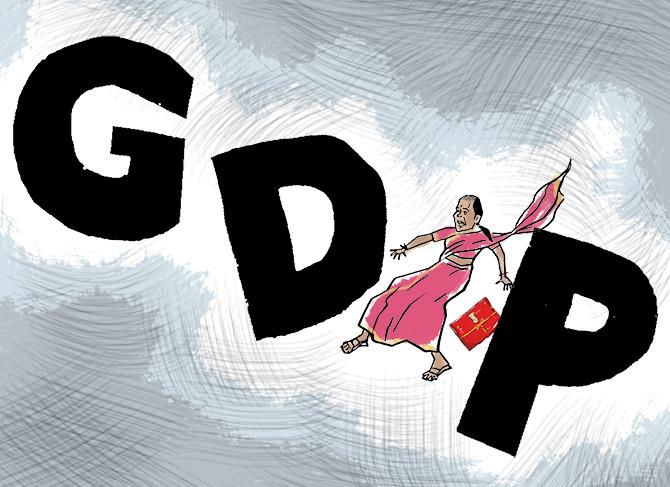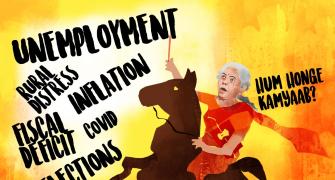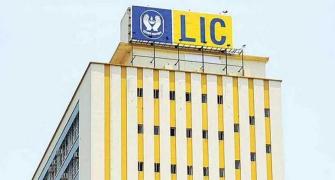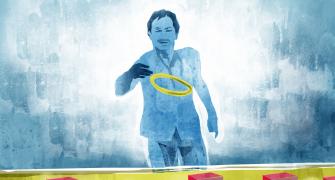The country's gross domestic product (GDP) is likely to grow at 5.8 per cent in the third quarter of fiscal 2022, according to an SBI's research report- Ecowrap.

The country's economy expanded by 8.4 per cent in the second quarter of 2021-22, to cross pre-pandemic levels.
However, the GDP growth in July-September period was slower than the 20.1 per cent expansion in the previous quarter.
The National Statistical Office (NSO) will declare the GDP estimates for Q3 FY 2021- 22 on February 28.
"As per SBI Nowcasting Model, the forecasted GDP growth for Q3 FY22 would be 5.8 per cent, with a downward bias.
"The full year (FY22) GDP growth is now revised downwards to 8.8 per cent from our earlier estimate of 9.3 per cent," the report said on Friday.
The Nowcasting Model is based on 41 high frequency indicators associated with industry activity, service activity, and global economy.
The real GDP will be around Rs 2.35 lakh crore more / 1.6 per cent higher than the FY20 real GDP of Rs 145.69 lakh crore, the report said.
The report said the recovery in domestic economic activity is yet to be broad-based, as private consumption remained below pre-pandemic levels.
The high frequency indicators suggest some weakening of demand in Q3 also continuing to January 2022, reflecting the drag on contact-intensive services.
Rural demand indicators, say two-wheeler and tractor sales, continued to decline since August 2021.
Amongst the urban demand indicators, consumer durables and passenger vehicle sales contracted in Q3, while domestic air traffic weakened in the wake of Omicron variant spread.
Investment activity though, is displaying a traction in pick up, with merchandise exports remaining buoyant, it said.
The report said this slower growth momentum reconfirms recent assertion that incipient growth recovery needs to be supported by accommodative policy longer than anticipated.
"We thus expect liquidity normalization may be delayed.
"This could have a further softening impact on government securities (G-sec) yields from current 6.7 per cent towards around 6.55 per cent or so," the report said.
The report suggested that the government can offer livelihood loans, say up to Rs 50,000 to rural poor.
This loan may be given on the premise that interest-servicing alone will keep the loan standard with subsequent loan renewal linked to successful repayment record, it said.
"If the government were to bear, say, 3 per cent interest subsidy, on a portfolio of Rs 50,000 crore, the outlay would be only Rs 1,500 crore during 2022-23.
"And these loans will also act as a big consumption booster at subsistent levels," it said.
The additional advantage of these micro livelihood loans is that they will help the banking system prepare a comprehensive database and credit history of marginal borrowers that can be further leveraged to create new credit-worthy borrowing classes, the report said.
The present overdraft facility for PMJDY accounts in the banking system, in existence for sometime can be streamlined and tech enriched with a central nodal agency/bank to monitor and promote the scheme meaningfully, it said.
The report further said that given the significant success of vaccination in the third wave in rural pockets, the livelihood loans can be the silver bullet catapulting the broader economy to unprecedented highs.








